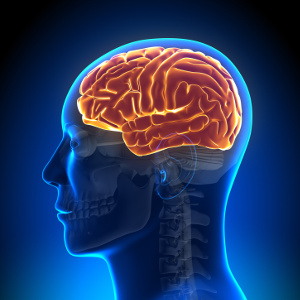There is a link between Alzheimer’s disease and magnesium deficiency
 Alzheimer’s is a growing health burden worldwide, and diet appears to play a major role. A large meta-analysis published in Frontiers in Aging Neuroscience recently revealed that patients with Alzheimer’s disease have lower levels of magnesium in their blood and cerebrospinal fluid compared to healthy controls. This suggests that being magnesium-deficient may be a risk factor in Alzheimer’s disease.
Alzheimer’s is a growing health burden worldwide, and diet appears to play a major role. A large meta-analysis published in Frontiers in Aging Neuroscience recently revealed that patients with Alzheimer’s disease have lower levels of magnesium in their blood and cerebrospinal fluid compared to healthy controls. This suggests that being magnesium-deficient may be a risk factor in Alzheimer’s disease.
The meta-analysis included 21 studies published in the period between 1991-2021 and was designed to show whether low lack of magnesium in plasma, serum, and the cerebrospinal fluid is an abnormal condition in Alzheimer’s patients. The scientist found the studies in various databases and ended up with a total of 1,112 patients with Alzheimer’s disease, and 1,001 healthy controls. The result showed that magnesium levels in serum and plasma were significantly lower in patients with Alzheimer’s disease than in the healthy controls. Also, there was a non-significant tendency to lower levels of magnesium in the cerebrospinal fluid in Alzheimer’s patients.
When the researchers analyzed total magnesium levels in plasma, serum, and cerebrospinal fluid they found that magnesium levels were significantly lower in Alzheimer’s patients. The scientists say that magnesium deficiency appears to be a risk factor in the development of Alzheimer’s disease, and that magnesium supplementation may be a good idea.
What effect does magnesium have on the nervous system and Alzheimer’s disease?
Alzheimer’s disease is the leading cause of dementia and is caused when neurons in several parts of the brain slowly deteriorate. It takes several years for the disease to develop and it progresses as harmful proteins (beta-amyloid plaques and tau) trigger local inflammation in the brain. Also, insulin resistance may occur in the brain, and for that reason Alzheimer’s disease is also called type 3 diabetes. Apparently, magnesium can help prevent Alzheimer’s disease by way of different mechanisms. Magnesium is involved in over 300 enzyme processes, many of which are linked to the nervous system, blood sugar regulation, and the utilization of vitamin D, a nutrient for which most cells and tissues have receptors.
Another key function is magnesium’s interplay with calcium. Magnesium serves as a door bolt in the calcium channels of the cells and controls how much calcium enters the cells. That way, it makes sure to maintain low calcium levels in the cells of all soft tissues, including the brain’s neurons. If there is too little magnesium, this “door bolt” function is disrupted, and there is a risk of cells in soft tissues being flooded by calcium, which can stress the cells and cause inflammatory conditions and cell death in worst case. However, it is important never to take calcium supplements without including magnesium, simply because the balance between these two nutrients is essential.
In their meta-analysis, the scientists explain how magnesium deficiency is linked to several neurological disorders, including migraine headaches and Parkinson’s disease. They also refer to studies that have revealed that increased dietary magnesium is linked to a lower risk of mild cognitive impairment, which is an early stage of Alzheimer’s disease.
They also mention animal studies that show that magnesium supplementation can improve the animals’ learning skills and memory.
Why are Alzheimer’s patients low in magnesium?
We primarily get magnesium from wholegrains, kernels, nuts, beans, and various vegetables. However, artificial fertilizers and pesticides impair the uptake of magnesium in plants. Moreover, refining, freezing, and overcooking of food may additionally reduce their magnesium content. What is more, many older people eat very little. Besides the impact of eating a magnesium-depleted diet, low magnesium levels may also be caused by consuming too much calcium from dairy products and calcium supplements, and using diuretics and antacids that are known to lower the body’s magnesium levels. The same is the case with a large alcohol intake and stress.
When purchasing magnesium supplements, always choose a high-quality product that the body can easily absorb and utilize.
References:
Ke Du et al. Association of Circulating Magnesium Levels in Patients With Alzheimer’s Disease From 1991 to 2021: A Systematic Review and Meta-Analysis. Frontiers in Aging Neuroscience. 2022
Dao-Yun Lei and Jie Sun. Magnesium may be an effective therapy for Alzheimer’s disease. World Journal Psychiatry 2022
Search for more information...
- Created on .








